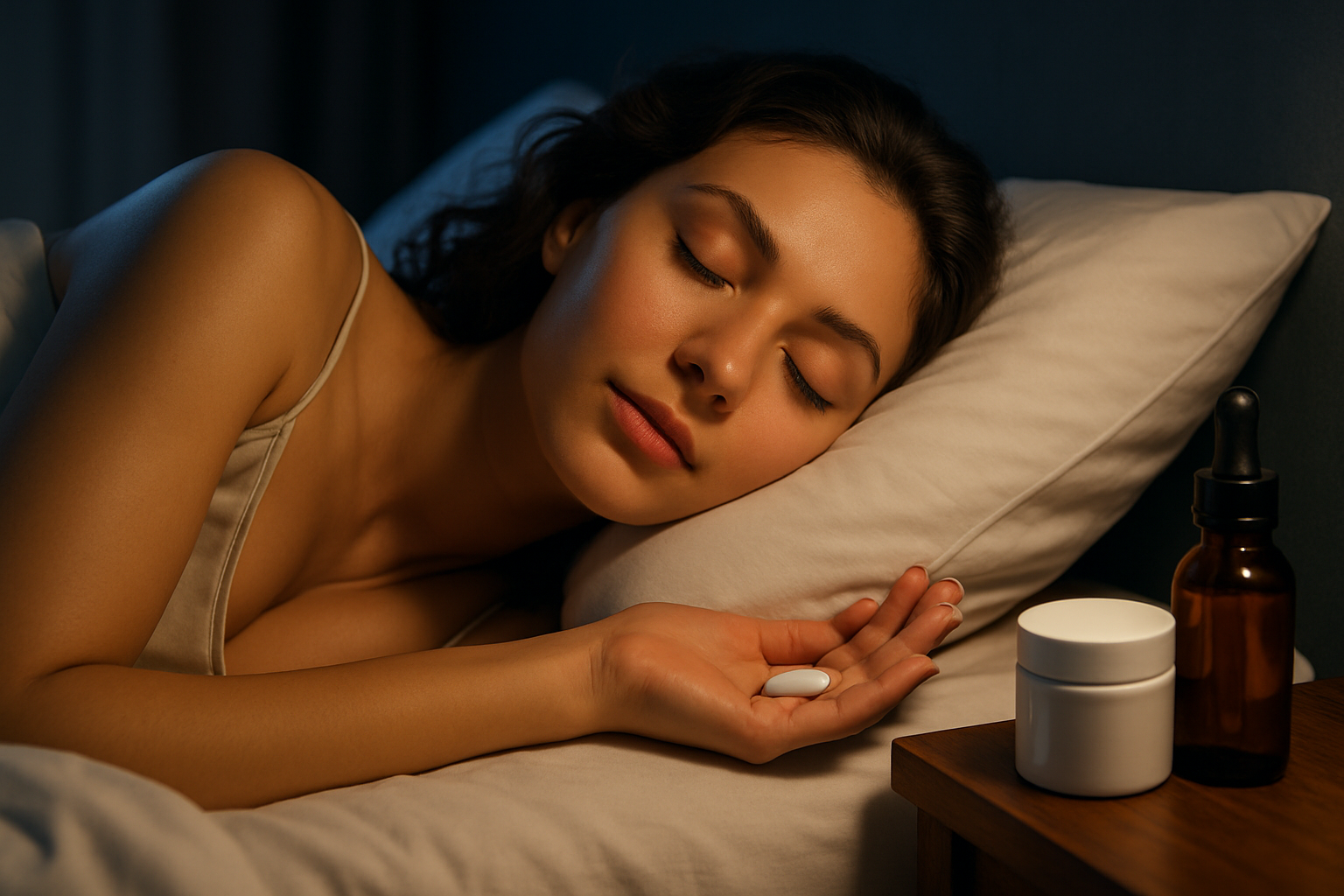Sleep Better Naturally: Essential Vitamins for Adult Sleep Support
Sleep vitamins may help support better rest by promoting relaxation and regulating your natural sleep cycle. Common ingredients like melatonin, magnesium, and B-complex vitamins are often used to improve sleep quality. They’re generally available in capsule or gummy form, and may offer a gentler alternative to prescription aids when used consistently as part of a nighttime routine.

What Are Sleep Vitamins for Adults?
Sleep vitamins are supplements specifically formulated to address common sleep issues by providing nutrients that support the body’s natural sleep processes. Unlike prescription sleep aids that may cause dependence or morning grogginess, sleep vitamins typically contain natural ingredients that work with your body’s existing systems. These supplements often combine multiple ingredients to address different aspects of sleep, from helping you fall asleep faster to improving sleep quality and duration. Many adults turn to these supplements when lifestyle changes alone haven’t resolved their sleep difficulties or when they prefer a more natural approach to sleep support.
Key Vitamins and Minerals That Support Better Sleep
Several vitamins and minerals play crucial roles in regulating sleep and relaxation. Magnesium is perhaps one of the most important minerals for sleep quality, helping to activate the parasympathetic nervous system responsible for relaxation. Research shows magnesium deficiency is linked to insomnia and poor sleep quality. Vitamin B6 aids in the production of melatonin and serotonin, both essential for regulating sleep cycles. Vitamin D deficiency has also been associated with poor sleep quality and reduced sleep duration. Additionally, zinc works synergistically with magnesium to help calm the nervous system and has been shown to improve sleep quality when levels are optimized. These nutrients don’t necessarily induce sleep directly but instead create optimal conditions in the body for natural, restorative sleep.
How Nighttime Vitamins Promote Deep Sleep
Nighttime vitamins for deep sleep often contain ingredients specifically chosen to enhance sleep architecture – the different stages of sleep we cycle through during the night. Melatonin, while technically a hormone rather than a vitamin, is frequently included in sleep formulations because it helps regulate circadian rhythm and signals to the body when it’s time to sleep. Amino acids like L-theanine and glycine promote relaxation by increasing GABA levels in the brain, which helps quiet neural activity. Many formulations also include herbs like valerian root, passionflower, and ashwagandha, which have been used traditionally for their sleep-promoting properties. These ingredients work together to not just help you fall asleep but to improve the quality of deep sleep – the most restorative sleep stage where physical recovery occurs.
Popular Formulations of Vitamins for Better Sleep and Relaxation
Sleep vitamins come in various formulations designed to suit different preferences and needs. Traditional capsules and tablets remain popular, offering precise dosing and generally longer shelf life. For those who dislike swallowing pills, gummies have become increasingly popular sleep vitamin options, though they may contain added sugars. Liquid formulations and powders that dissolve in water provide alternatives for faster absorption. Some products focus on single ingredients like melatonin or magnesium, while comprehensive sleep formulas combine multiple ingredients to address various aspects of sleep. Time-released formulations are designed to help both with falling asleep initially and maintaining sleep throughout the night. The best formulation depends on individual preferences, specific sleep challenges, and any dietary restrictions.
When to Consider Adding Sleep Vitamins to Your Routine
Sleep vitamins may be worth considering if you experience occasional difficulty falling asleep, staying asleep, or achieving restorative rest. They’re particularly relevant for those experiencing sleep changes due to aging, work schedule shifts, travel across time zones, or seasonal changes affecting light exposure. However, it’s important to view sleep vitamins as one component of a comprehensive approach to sleep health rather than a standalone solution. Before adding supplements, address sleep hygiene basics like maintaining a regular sleep schedule, creating a comfortable sleep environment, limiting screen time before bed, and managing stress. If sleep problems persist despite good sleep habits, or if they significantly impact daily functioning, consult a healthcare provider to rule out underlying conditions like sleep apnea or chronic insomnia that may require different interventions.
Common Sleep Vitamin Products and Their Costs
The market offers numerous sleep vitamin options at various price points. Understanding the general cost landscape can help consumers make informed decisions about these supplements.
| Product | Primary Ingredients | Form | Approximate Cost |
|---|---|---|---|
| Nature Made Sleep | Melatonin, L-theanine | Gummies | $11-15 for 30 servings |
| Olly Sleep | Melatonin, L-theanine, Chamomile | Gummies | $13-18 for 30 servings |
| NatureMade Sleep3 | Melatonin, L-theanine, GABA | Tablets | $18-25 for 30 servings |
| Pure Encapsulations Sleep Solution | Melatonin, Magnesium, GABA | Capsules | $30-40 for 30 servings |
| Garden of Life Sleep | Magnesium, L-theanine, Valerian | Tablets | $20-30 for 30 servings |
Prices, rates, or cost estimates mentioned in this article are based on the latest available information but may change over time. Independent research is advised before making financial decisions.
Creating a Comprehensive Sleep Strategy With Vitamins
While sleep vitamins can be helpful, they work best as part of a holistic approach to better sleep. Start by establishing a consistent sleep schedule, even on weekends, to regulate your body’s internal clock. Create a relaxing bedtime routine that might include reading, gentle stretching, or meditation. Make your sleeping environment comfortable – dark, quiet, and cool. Consider complementary natural approaches like aromatherapy with lavender or chamomile. When adding sleep vitamins to this foundation, be patient; many supplements work best when taken consistently over time rather than occasionally. Begin with the lowest effective dose and monitor your response. Remember that individual responses to sleep supplements vary significantly, so what works for one person may not work for another.
This article is for informational purposes only and should not be considered medical advice. Please consult a qualified healthcare professional for personalized guidance and treatment.




